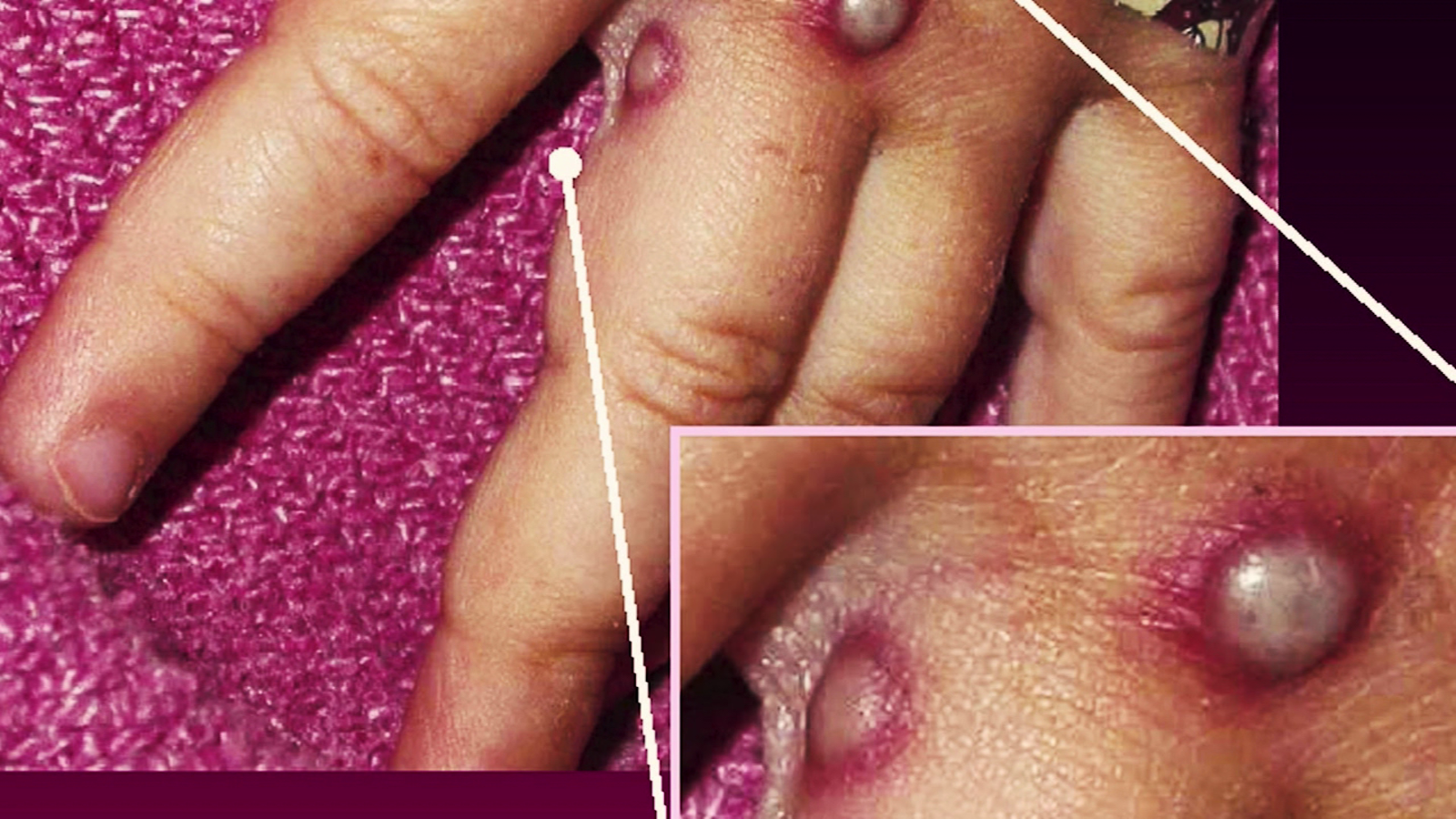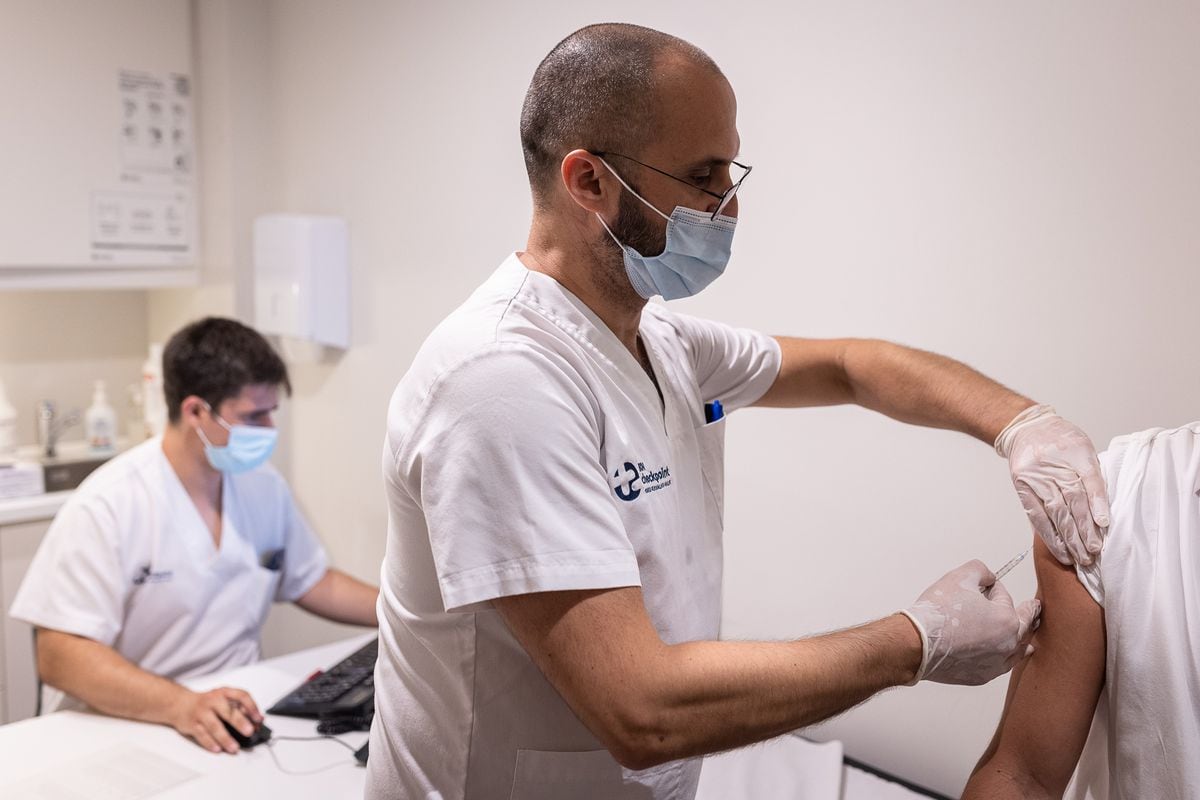Does smallpox vaccine work against monkeypox?
0:52
(CNN Spanish) --
More than 300 cases of monkeypox have been confirmed since the beginning of the outbreak in countries where the disease is not endemic, according to the scientific platform Our World in Data.
Certain groups of the population are at higher risk of becoming infected or developing severe illness.
This is what you should know.
Who is most at risk of becoming infected?
There are three population groups at higher risk of being infected with monkeypox, Dr. Richard Kennedy, professor of Medicine and co-director of the Mayo Clinic Vaccine Research Group, tells CNN en Español.
The first is made up of those people who travel to areas where the disease is endemic.
According to the World Health Organization, the countries where monkeypox is endemic are Benin, Cameroon, Central African Republic, Democratic Republic of the Congo, Gabon, Ghana (where it has been identified only in animals), Ivory Coast, Liberia , Nigeria, Sierra Leone, South Sudan, and the Republic of the Congo, where the first human case was identified in 1970.
(Travel, in fact, is a key factor in the outbreaks. With "very few exceptions", according to the expert, all the cases of monkeypox that had been registered before outside Africa were from travelers returning from that continent) .
Also at increased risk are those in close contact with these individuals who have traveled or are traveling and health care workers treating monkeypox patients without adequate personal protective equipment.
advertising
Spain is the most affected country in the European Union by monkeypox
Why has the LGBT+ community been talked about?
The Centers for Disease Control and Prevention (CDC) said this week that anyone can get or spread monkeypox, but a "remarkable fraction of cases" in the latest global outbreak are occurring among men. homosexual and bisexual.
"Some groups may have a higher chance of exposure at this time, but the current risk of exposure to monkeypox is by no means unique to the gay and bisexual community in the US," Dr. John clarified nonetheless. Brooks, medical director of the CDC's Division of HIV/AIDS Prevention.
In this regard, Kennedy explains that the outbreak was so far concentrated in a group of men who have sex with men who attended one or more than one party in Spain.
But "it's not a matter of vulnerability," he clarifies, "they may be more at risk simply because that's the population group currently infected."
UN AIDS, for its part, has expressed concern about the use of stigmatizing language in the context of the discussion of monkeypox, language that can reinforce "homophobic and racist stereotypes."
UN, against discrimination for monkeypox cases 1:14
Who can develop a more severe disease?
Immunocompromised people are more likely to be infected and develop more severe disease.
This category includes, Kennedy explains, HIV-positive people, cancer patients, organ transplant recipients, and those taking immunosuppressive drugs.
Some skin conditions such as eczema and atopic dermatitis are associated with more serious infections due to the orthohopox virus, a genus of which monkeypox is a part, but it is not yet known if this will be the case specifically for the disease of the monkeypox. monkey pox.
What happens to the children?
In countries where the disease is endemic, health workers have noted that children develop more severe disease than adults, which is the group in which most cases are recorded.
However, there is still no certainty that this is the case, explains Kennedy.
How can the virus mutate?
All viruses mutate, a reality that we are very aware of in the context of the coronavirus pandemic.
However, according to Kennedy, the monkeypox virus, like all of the orthohopox family, "is a DNA virus and mutates more slowly than RNA viruses such as SARS-CoV-2."
The more people are infected, the more likely it is that the virus will mutate, since viruses can only mutate when they are in an infected cell.
"Most mutations are harmful to the virus or have no effect on it (...). Every now and then a mutation occurs that is beneficial to the virus. When this occurs, the mutated virus still needs to be passed on." to more people to spread. This is easy for highly infectious viruses. It will be more difficult for monkeypox virus."
What is the status of vaccines?
In the United States, monkeypox vaccines are already available to some health care workers who treat infected people.
What happens at a general level?
Smallpox vaccines are 85% effective against monkeypox, according to the WHO.
However, "very few countries have it available in large numbers since smallpox was eradicated in 1980 and routine vaccination hasn't been done for decades," Kennedy explains.
Currently, he says, "very few companies" have the capacity to manufacture it.
Yes, they could be produced in large quantities, but it would take a long time.
"We would have to build the infrastructure and facilities for manufacturing, create the vaccines, ensure quality control by regulatory agencies, and then distribute the vaccines," he explains.
With information from Carolina Melo.
monkey pox








